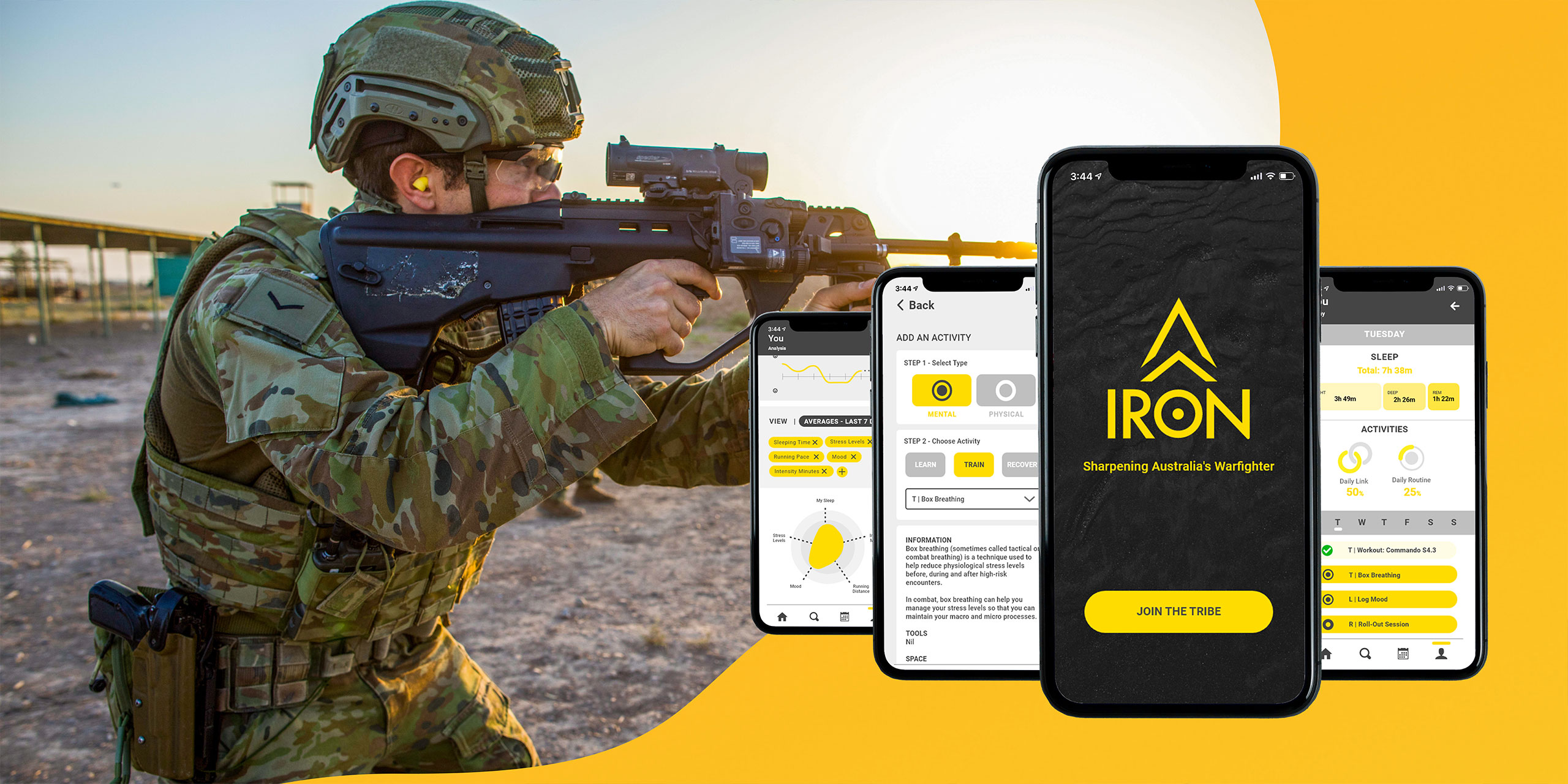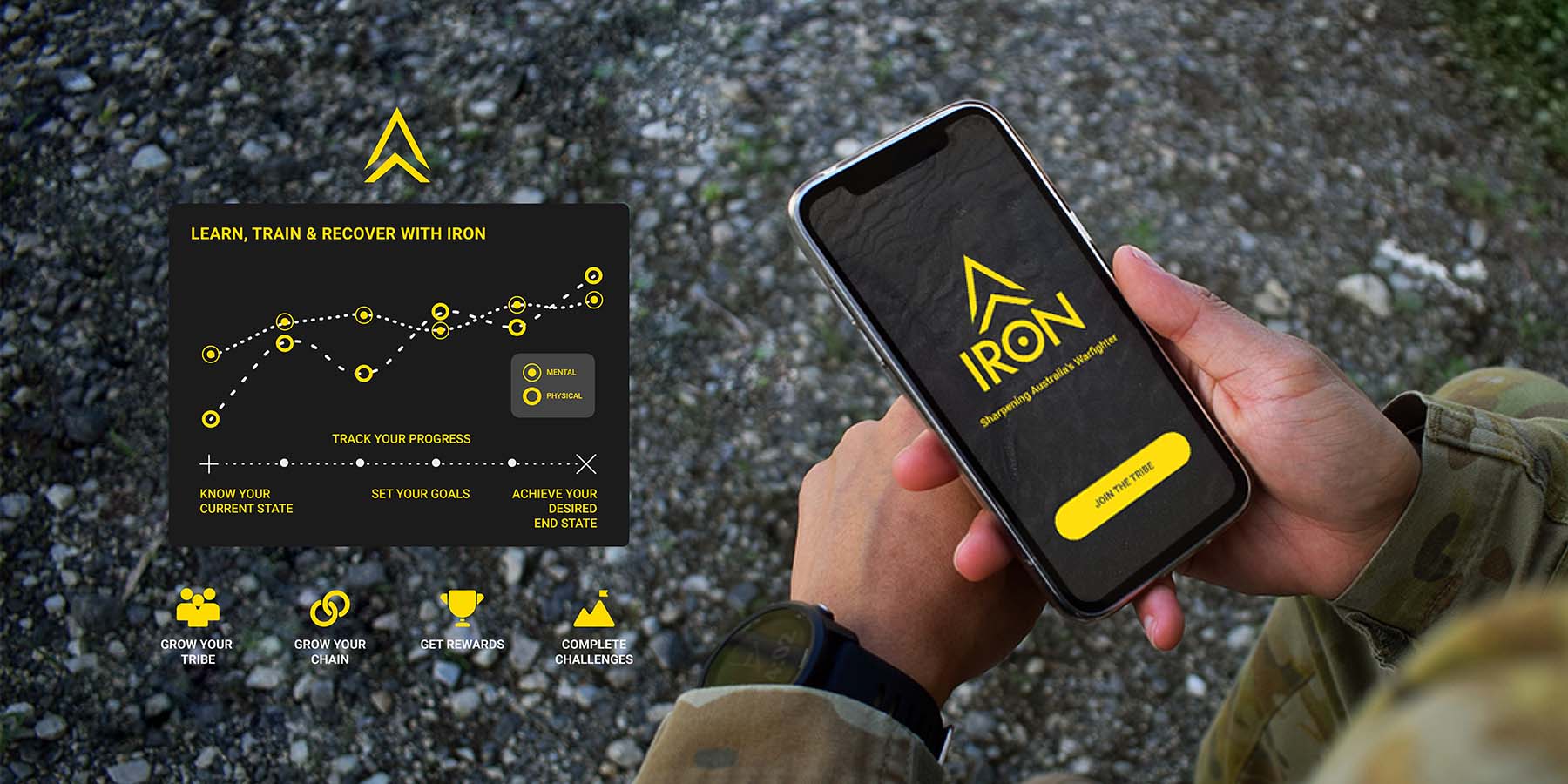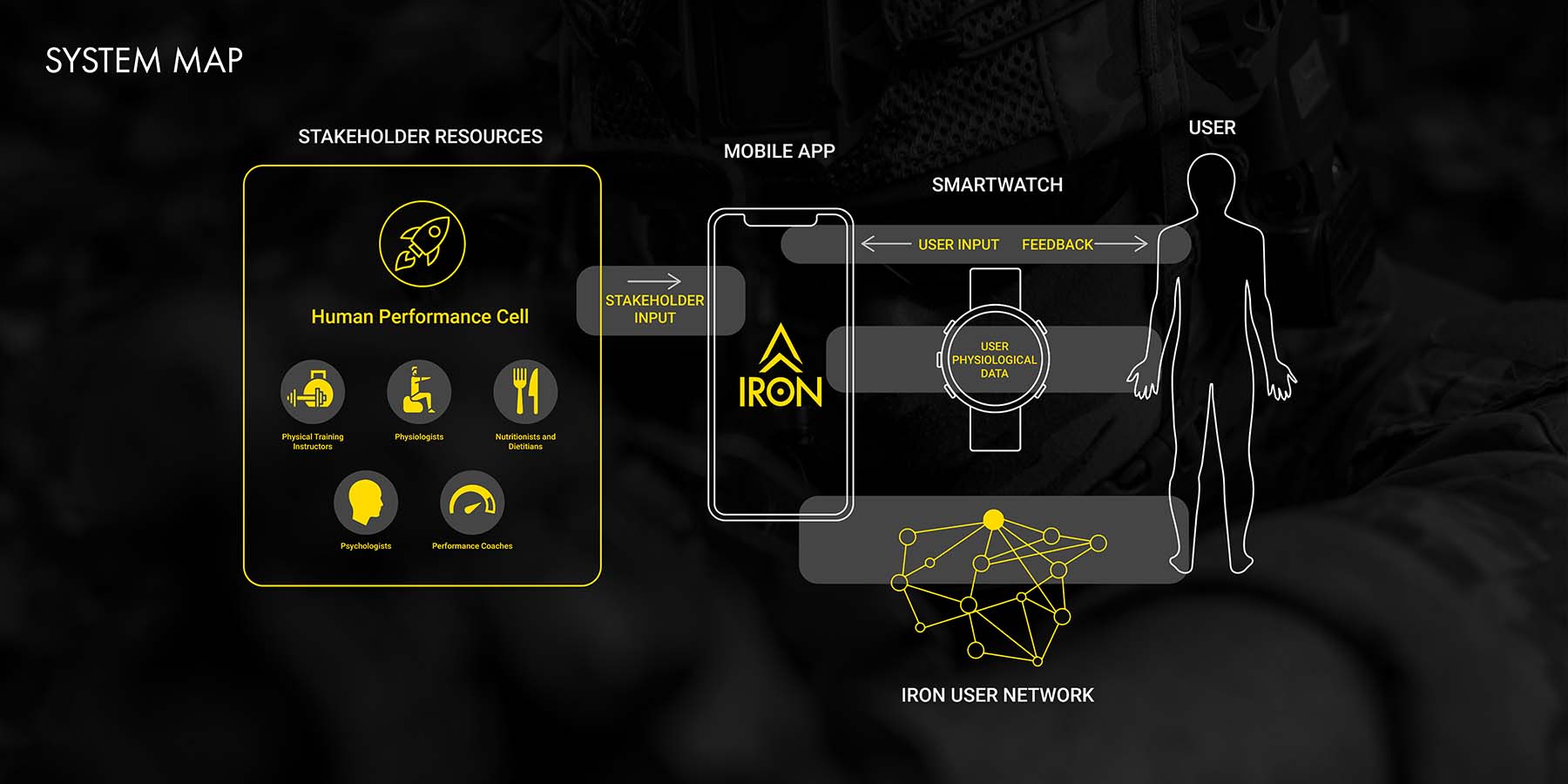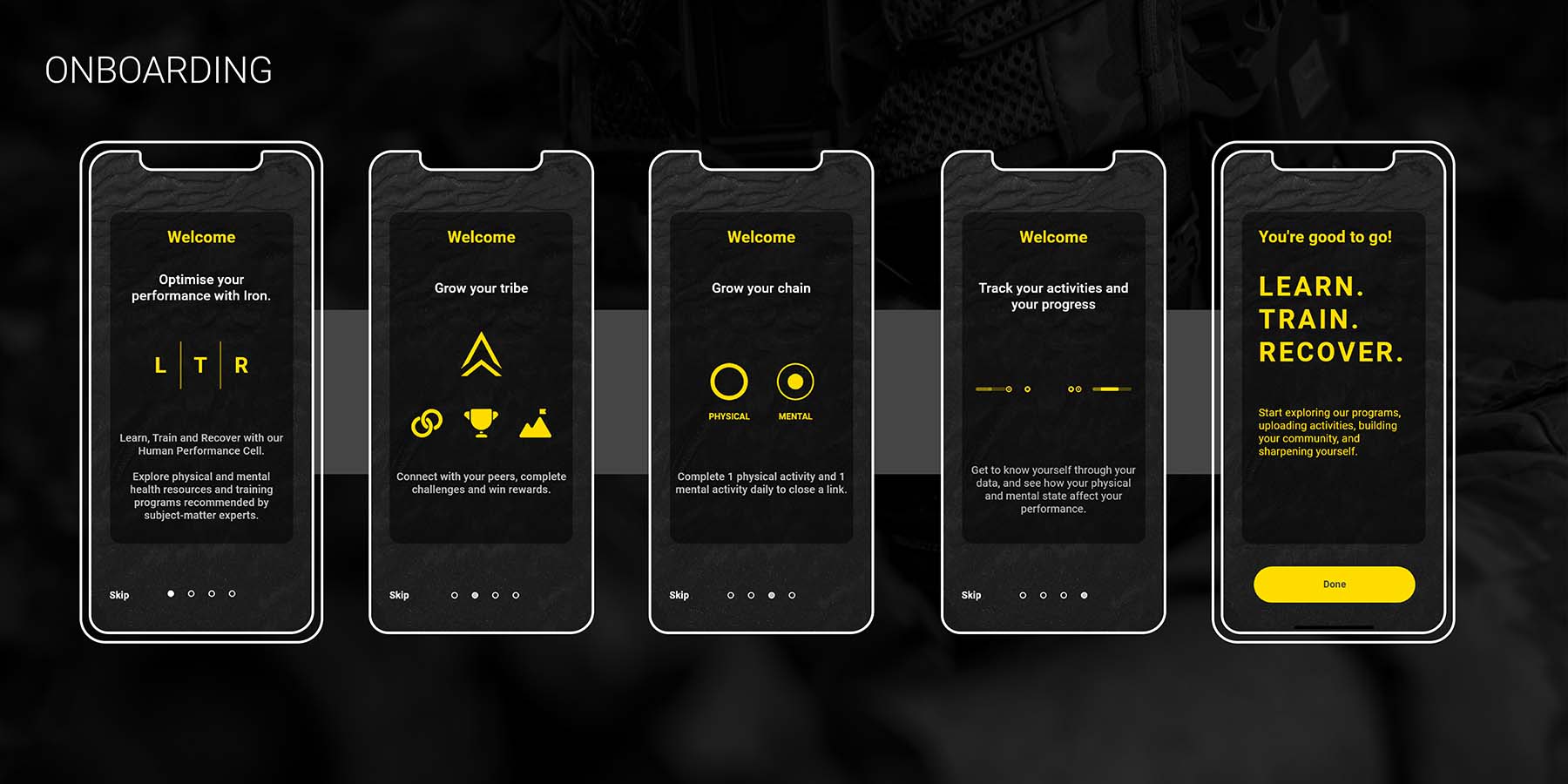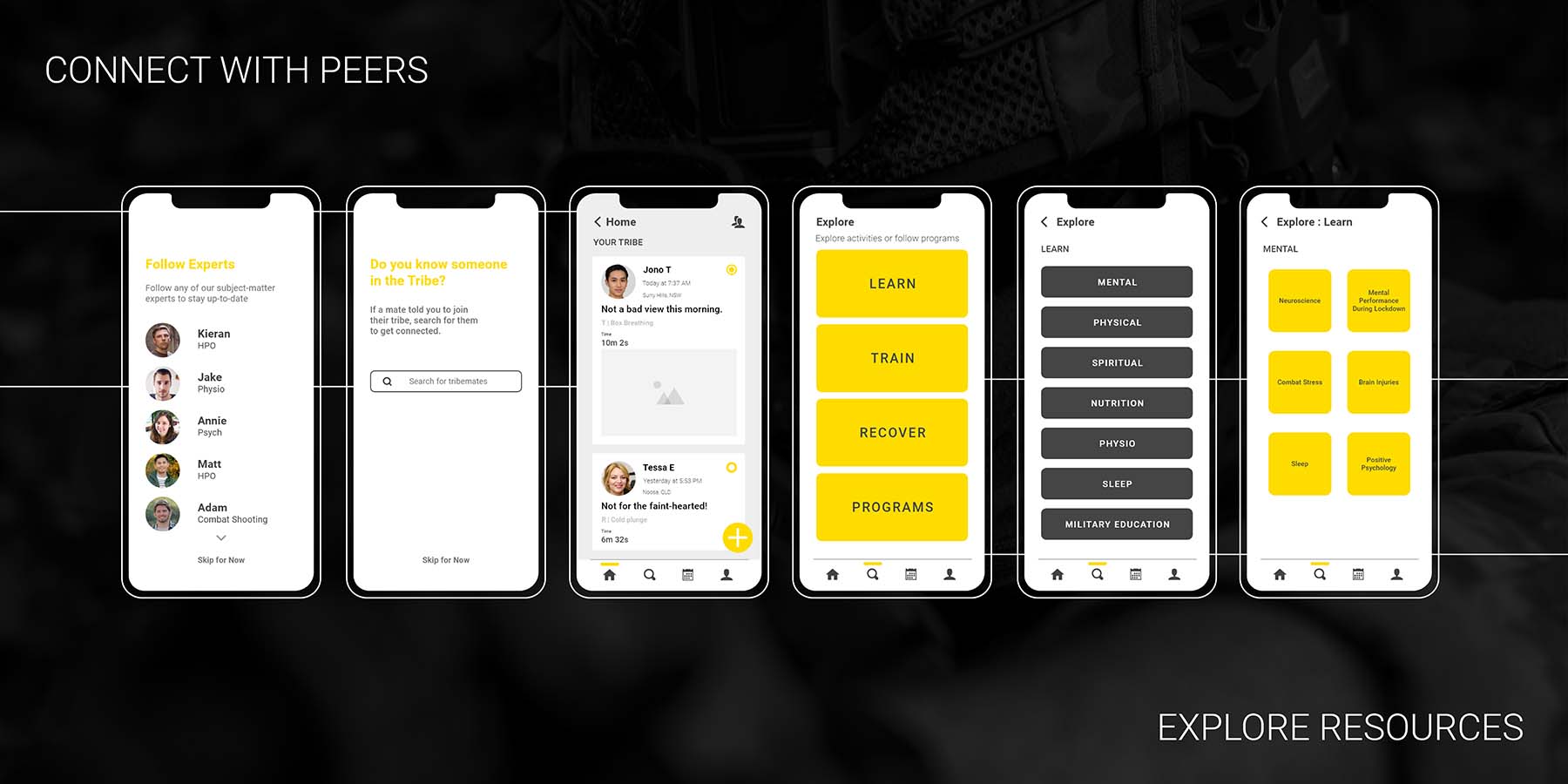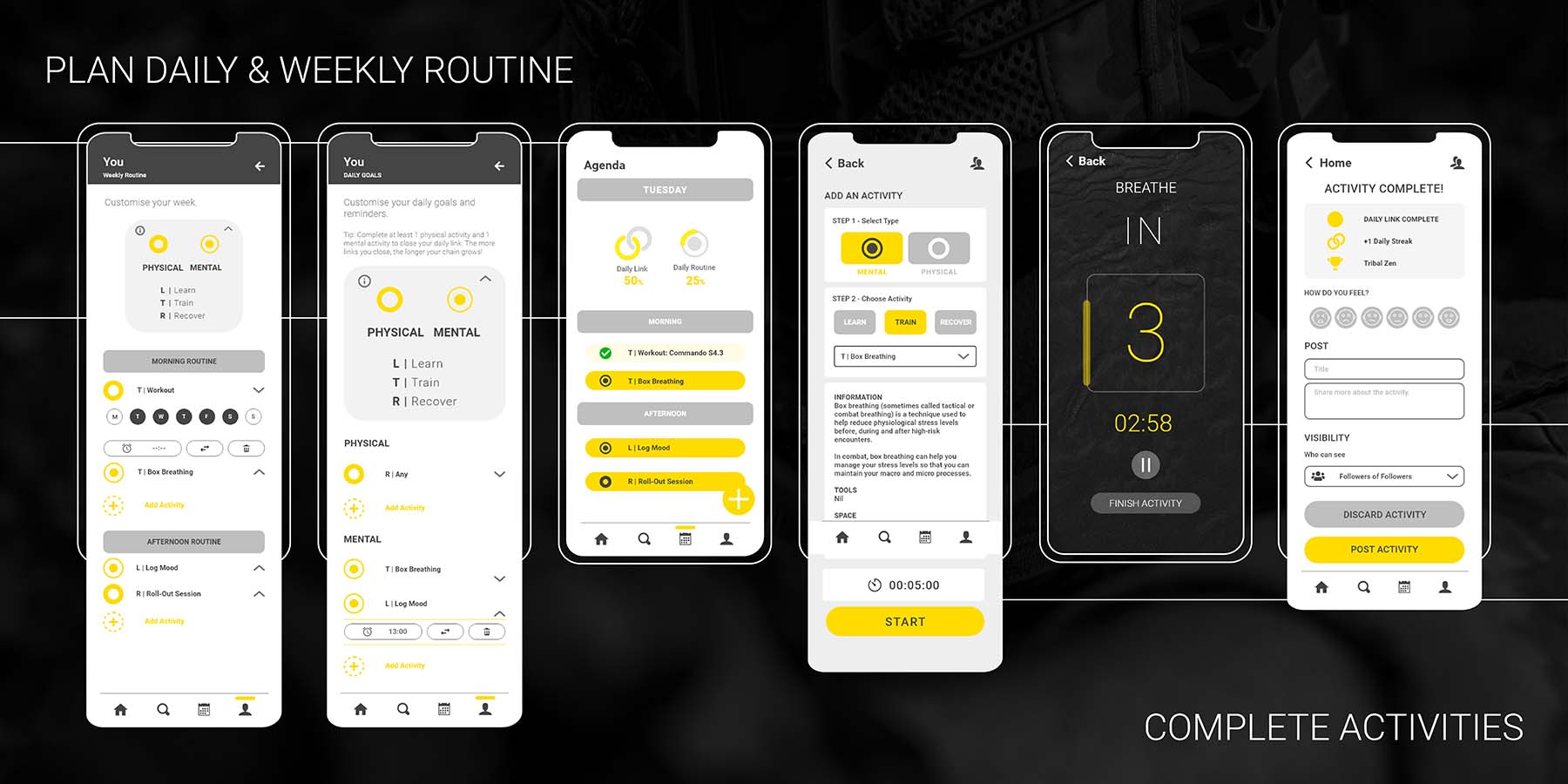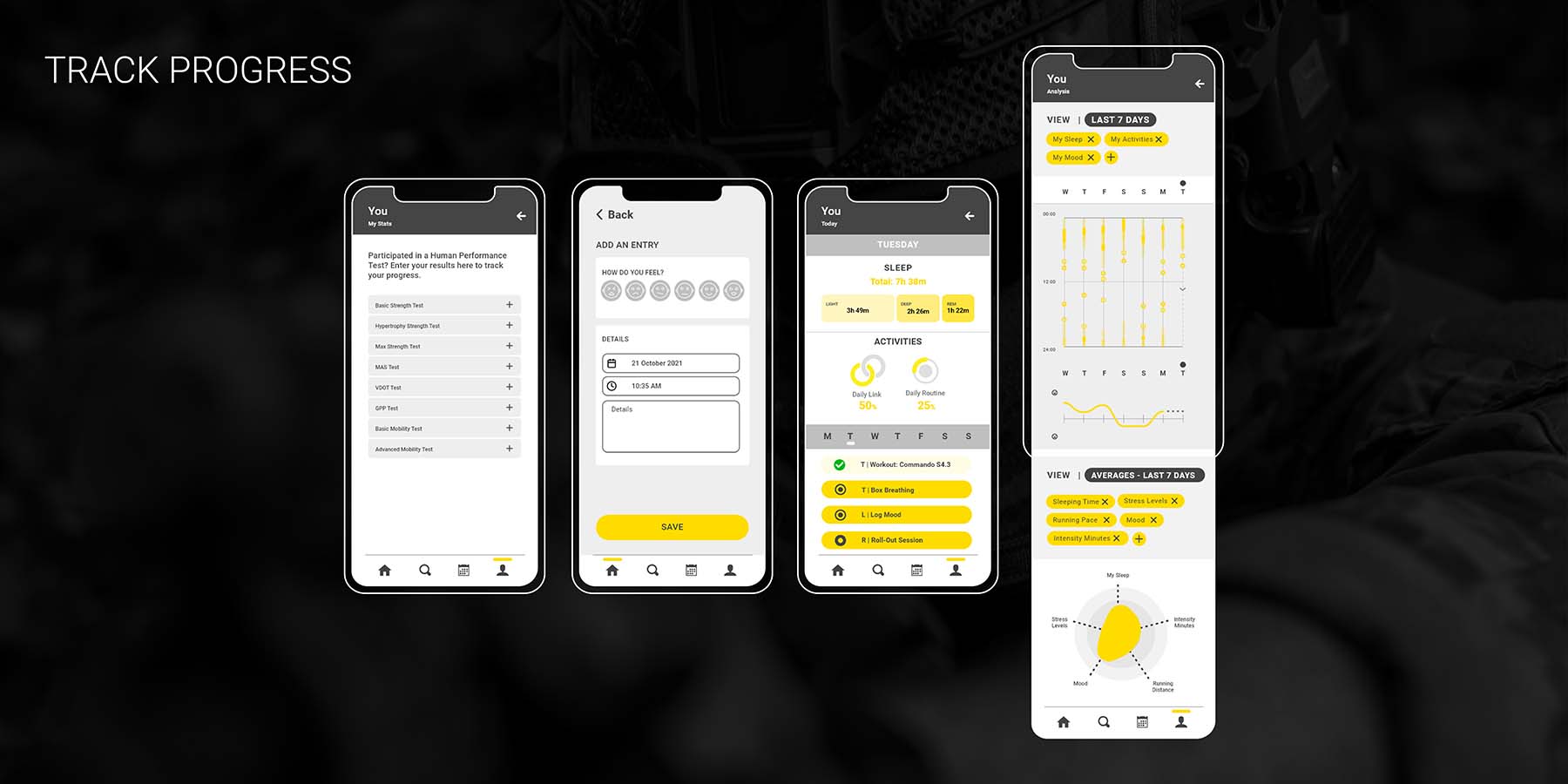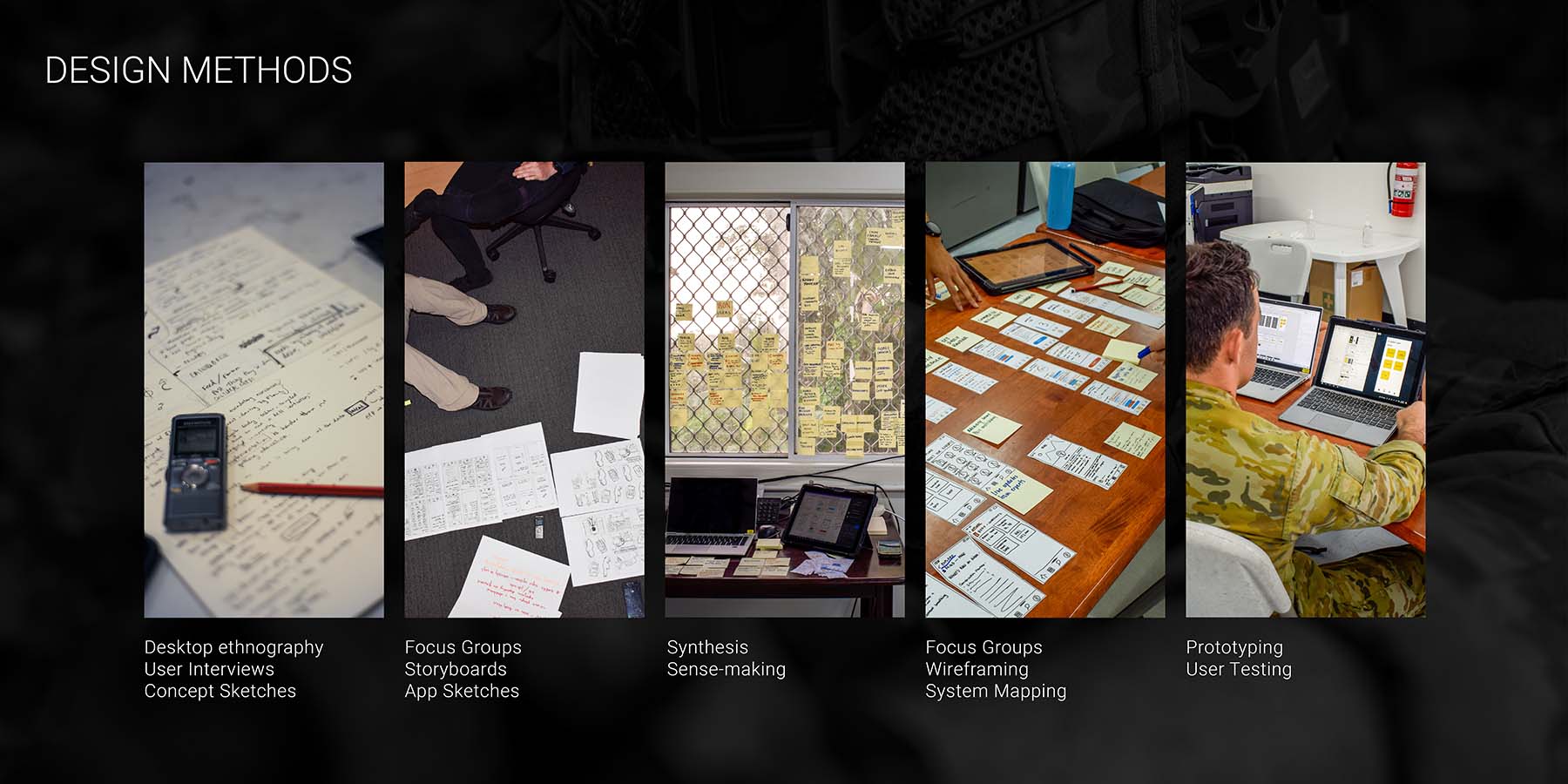The Iron App project began with understanding the problem of mental ill-health in the military and understanding the military identity and experience. This established the design challenge: how might one bridge the gap between physical health and mental health so that a positive change in attitudes towards mental health care can be nurtured in the military?
The design model followed by this project is best represented as the double-diamond model for design thinking informed by two design frameworks: Social Implication Design (social change through artefacts, driven by understanding the natural social phenomenon affecting the social problem and understanding the subsequent contributing behaviors) and Design for Wellbeing (links social practice theory with wellbeing and bridges the gap between abstract experiential design objectives with specific products and interactions). Combining these frameworks influenced critical thought so that a positive social and psychological impact could be realised through the design outcome.
Following this framework, the project began with heavy research into the social context in the military and the perceptions that contribute to barriers to mental health care. Desktop ethnographic research, surveys and interviews were conducted to gain a deeper understanding of the users, their needs and their social context. It was after an iterative synthesis of facts and ideas that the design challenge and proposition were formulated.
Precedent examples of positive design practices and outcomes were used to influence the pathways that were pursued for the project: the gamification of health and quantified self. Sketches, system maps, storyboards, and wireframes and prototypes were then presented to potential users in interviews and focus groups. These methods followed an iterative process of ideation, prototyping and testing which helped validate the usability, function and value of the final design outcome: the Iron App.

